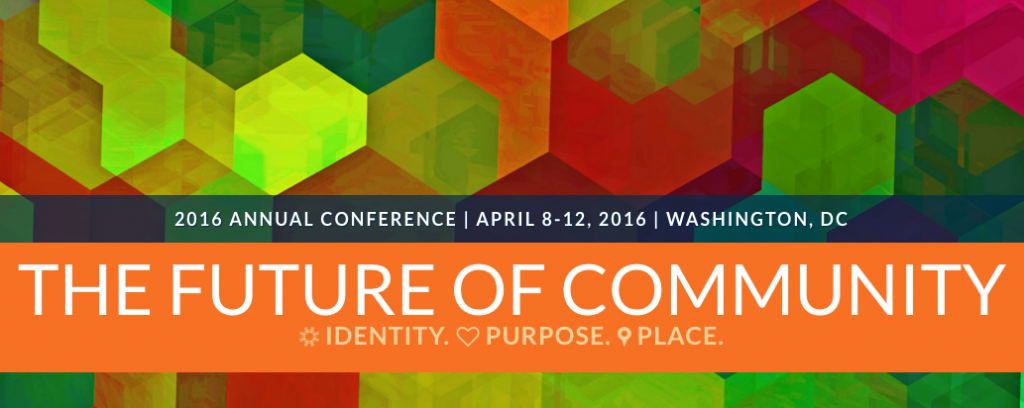Hundreds gathered in Washington DC this week for the Council on Foundations 2016 Annual Conference, themed “The Future of Community,” to discuss key issues influencing and shaping our communities.
Thanks to the power of technology and social media, I was able to
virtually attend this year’s conference by following #COFAnnual on Twitter. As a millennial who’s relatively new to the social sector, it was interesting for me to see what issues are shaping the world of philanthropy today.
These are my highlights from this year’s gathering:
The power of millennials
There is a lot of talk about millennials, and rightfully so: we are the largest generation in the American workforce, representing 1 in 3 workers – a number expected to rise to 3 in 4 by 2025. The way we think about social issues and giving will have a huge impact on philanthropy and communities overall for decades to come.
It’s clear that nonprofits must evolve their practices to better engage and connect with millennials. Some key things to remember are that millennials are the most racially diverse generation in U.S. history, so we value diversity and inclusion. Millennials drive adoption of new digital platforms. Reaching us requires mobile technology and social media. Ultimately, millennials value making a positive social impact, and millennial donors want to understand where their money goes, so building a culture of transparency and trust is essential.
This is what people want to talk about @ #cofmillennials#COFannualpic.twitter.com/4yTMo9tXyM
— Philanthrogeek (@Pg33k) April 11, 2016
Diversity is a journey — not a stopping point
Philanthropy lags behind the general population of college graduates in diversity, and at the current rate of change, racial and ethnic representation in philanthropy will not catch up to overall US demographics. We must get serious about creating a truly inclusive workforce and dedicate efforts toward putting diversity, equity and inclusion at the center of our work.
It’s not an easy task that has a quick solution, but it is definitely worth the effort. We have to increase diversity in philanthropy to ensure that we are addressing the most important problems and creating solutions for our communities that take into account all voices, abilities and needs.
“Our sector doesn’t reflect society’s demographics, and it’s our moral imperative to do better, and do better now.” @VikkiSpruill#COFannual
— CouncilonFoundations (@COF_) April 11, 2016
The importance of education
Two-thirds of all jobs being created today require some form of post-secondary education. These jobs require a higher level of skill, and to date, our education system has not prepared our youth for this future.
Education is a pathway out of poverty, and philanthropy has an important role to play in improving education and bringing the next generation into the workforce. Foundations must invest in programs that improve education and cultivate talent and essential skill development to prepare students for the modern workforce.
The best anti poverty program is a job. #workforce#cofannual#dei4allpic.twitter.com/qyzBSiFim0
— RespectAbilityUSA (@Respect_Ability) April 11, 2016
Did you attend the conference, virtually or in-person? What were your key takeaways?



